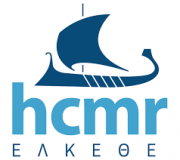General information
WHAT?
An intensive course on a new, multidisciplinary scientific field: Conti-nental Shelf Prehistoric Research (CSPR). The course will take place in Porto Cheli (Greece), and include field trips to the prehistoric site of Franchthi Cave and surrounding area
CONTENT?
Following the success of the University of Geneva Terra Submersa expedition in 2014, the summer school offers an intensive course on a new, multidisciplinary scientific field: Continental Shelf Prehistoric Research (CSPR). The course aims at educating postgraduate students and young scientists to move across the boundaries of marine geosciences and archaeology, in order to shed light on the interaction between our ancestors with the dynamically changing environment. Practically, the summer school will take place in Porto Cheli (Greece), and include field trips to the prehistoric site of Franchthi Cave and surrounding area.
FOR WHOM?
For postgraduate students and young scientists who wish to move across the boundaries of marine geosciences and archaeology, in order to shed light on the interactions between our ancestors and the dynamically changing environment
BY WHOM?
Teaching by the University of Geneva faculty and renowned experts from international universities or institutions•
WHY?
A unique opportunity to understand paleoclimate and sea level change and their interaction with isostatic and tectonic vertical movements, and to link them to the archaeology of people who lived on and migrated across the continental shelf
The objective is to give the opportunity for young archaeologists and geoscientists to:
- Learn about marine geophysical (multibeam, side scan sonar, sub bottom profiler), marine geological methodologies as well as data acquisition, post-processing and interpretation
- Understand paleoclimate and sea-level changes and their interaction with isostatic and tectonic vertical movements
- Link climate, sea level and environmental changes to the archaeology of people who lived on and migrated across the continental shelf
- Familiarize with key themes in coastal prehistory
Content
The highlighted icons, represent the fields of education (in compliance with ISCED Classification) engaged during this course/programme.
Venue
Porto Cheli, Greece
Application
Click here to apply: https://www.genevasummerschools.ch/programme/courses-2017/submerged-prehistoric-...
Cost:
<p>Tuition Fees: 600 CHF<br /> Free full-board accommodation included! 6 nights at Porto Cheli, shared rooms for 2-3 persons.</p>
Qualification
Credits:
WHAT?
An intensive course on a new, multidisciplinary scientific field: Conti-nental Shelf Prehistoric Research (CSPR). The course will take place in Porto Cheli (Greece), and include field trips to the prehistoric site of Franchthi Cave and surrounding area
CONTENT?
Following the success of the University of Geneva Terra Submersa expedition in 2014, the summer school offers an intensive course on a new, multidisciplinary scientific field: Continental Shelf Prehistoric Research (CSPR). The course aims at educating postgraduate students and young scientists to move across the boundaries of marine geosciences and archaeology, in order to shed light on the interaction between our ancestors with the dynamically changing environment. Practically, the summer school will take place in Porto Cheli (Greece), and include field trips to the prehistoric site of Franchthi Cave and surrounding area.
FOR WHOM?
For postgraduate students and young scientists who wish to move across the boundaries of marine geosciences and archaeology, in order to shed light on the interactions between our ancestors and the dynamically changing environment
BY WHOM?
Teaching by the University of Geneva faculty and renowned experts from international universities or institutions•
WHY?
A unique opportunity to understand paleoclimate and sea level change and their interaction with isostatic and tectonic vertical movements, and to link them to the archaeology of people who lived on and migrated across the continental shelf
The objective is to give the opportunity for young archaeologists and geoscientists to:
- Learn about marine geophysical (multibeam, side scan sonar, sub bottom profiler), marine geological methodologies as well as data acquisition, post-processing and interpretation
- Understand paleoclimate and sea-level changes and their interaction with isostatic and tectonic vertical movements
- Link climate, sea level and environmental changes to the archaeology of people who lived on and migrated across the continental shelf
- Familiarize with key themes in coastal prehistory

 HCMR Hellenic Centre for Marine Research
HCMR Hellenic Centre for Marine Research

